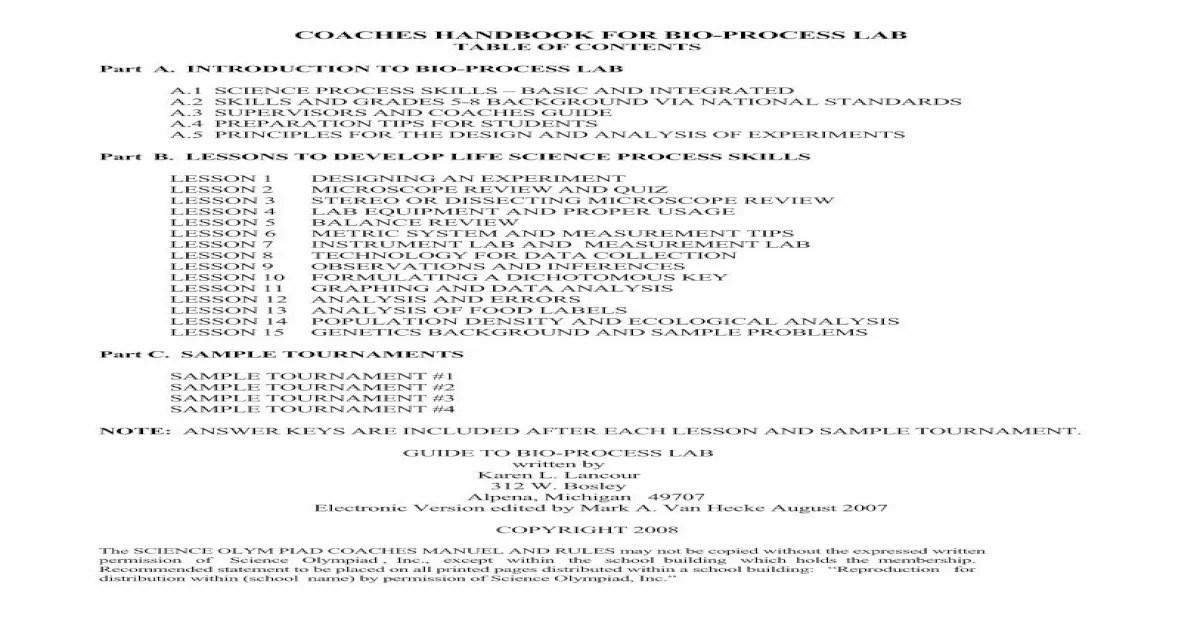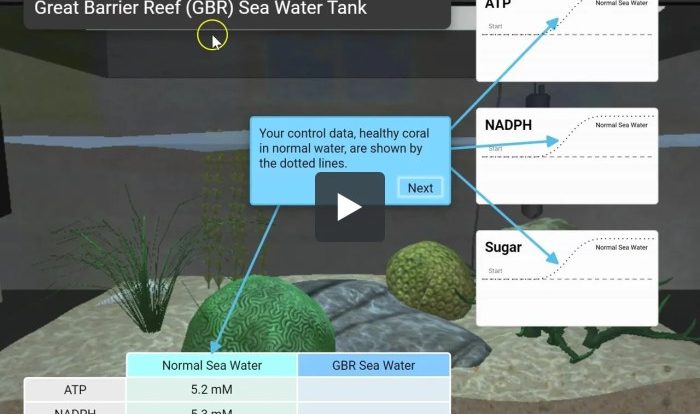Bio process lab science olympiad – Embark on an enthralling journey into the Bioprocess Lab Science Olympiad, a prestigious event that ignites a passion for STEM careers, fosters practical skills, and fosters collaboration among aspiring scientists.
This Olympiad offers a unique platform for students to showcase their abilities in biology, chemistry, and engineering, propelling them towards a future filled with endless possibilities.
Bioprocess Lab Science Olympiad Overview
The Bioprocess Lab Science Olympiad (BLSO) is an annual competition that aims to inspire students’ interest in the field of bioprocess engineering and laboratory sciences.
The competition was first held in 2006 and has since become a popular event for high school students from around the world. The event is structured into two rounds, with the first round held at regional sites and the second round held at a national site.
To be eligible to participate, students must be enrolled in a high school and have completed at least one year of biology and chemistry.
Goals
The goals of the BLSO are to:
- Provide students with an opportunity to apply their knowledge of bioprocess engineering and laboratory sciences in a competitive setting.
- Encourage students to pursue careers in the field of bioprocess engineering and laboratory sciences.
- Promote the importance of bioprocess engineering and laboratory sciences in society.
Event Components and Activities

The Bioprocess Lab Science Olympiad is a comprehensive event that combines hands-on experiments, problem-solving challenges, and theoretical knowledge assessments to evaluate students’ understanding of bioprocess science and technology.
The event consists of the following components:
Hands-on Experiments
Students conduct hands-on experiments that involve the application of bioprocess techniques and principles. These experiments may include:
- Microbial growth and fermentation
- Enzyme kinetics and characterization
- Bioreactor design and operation
- Downstream processing and purification
Problem-solving Challenges
Students engage in problem-solving challenges that require them to apply their knowledge of bioprocess science and technology to real-world scenarios. These challenges may include:
- Troubleshooting bioprocess operations
- Designing and optimizing bioprocesses
- Analyzing and interpreting experimental data
- Developing and presenting solutions to bioprocess-related problems
Theoretical Knowledge Assessments
Students demonstrate their theoretical knowledge of bioprocess science and technology through written and oral assessments. These assessments may include:
- Multiple-choice questions
- Short answer questions
- Essay questions
- Oral presentations
The combination of these components provides a holistic assessment of students’ bioprocess science and technology knowledge and skills.
Skills and Knowledge Required: Bio Process Lab Science Olympiad
Success in the Bioprocess Lab Science Olympiad demands a strong foundation in the fundamentals of biology, chemistry, and engineering. Participants should possess a comprehensive understanding of these disciplines and be able to apply their knowledge in a practical setting.
The event covers various areas within these fields, including:
Biology
- Molecular biology and genetics
- Cell biology
- Microbiology
- Biochemistry
Chemistry
- Analytical chemistry
- Organic chemistry
- Inorganic chemistry
- Physical chemistry
Engineering
- Bioprocess engineering
- Chemical engineering
- Mechanical engineering
- Electrical engineering
Preparation and Training Strategies
Excelling in the Bioprocess Lab Science Olympiad requires meticulous preparation and effective training strategies. Here’s a comprehensive guide to help students and teams optimize their performance.
Crafting a well-structured study plan is crucial. Allocate ample time for studying core concepts, practicing experimental techniques, and honing problem-solving skills. Utilize textbooks, research papers, and online resources to broaden your knowledge base.
Practice Makes Perfect
Hands-on experience is invaluable in bioprocess lab science. Seek opportunities to practice experimental techniques in a laboratory setting. Engage in mock experiments, conduct research projects, or volunteer at biotechnology companies to gain practical insights and develop confidence.
Sharpen Your Problem-Solving Abilities
Bioprocess Lab Science Olympiad challenges often require critical thinking and problem-solving skills. Practice analyzing experimental data, identifying patterns, and developing innovative solutions. Engage in problem-solving exercises, participate in research competitions, or join online forums to enhance your analytical capabilities.
Teamwork and Collaboration
Effective teamwork is essential for success in the Bioprocess Lab Science Olympiad. Cultivate strong communication skills, learn to work collaboratively, and respect diverse perspectives. Participate in group projects, engage in online discussions, or join study groups to develop your interpersonal and collaborative abilities.
Stay Updated with Advancements
The field of bioprocess lab science is constantly evolving. Keep abreast of the latest research, technological advancements, and industry trends. Attend conferences, read scientific journals, and engage with experts in the field to stay at the forefront of knowledge.
Case Studies and Examples
The Bioprocess Lab Science Olympiad has witnessed exceptional teams and individuals showcasing remarkable achievements. Their success stories offer valuable insights into effective preparation strategies and approaches to problem-solving.
One notable team, “Biotech Mavericks,” consistently ranked among the top performers. Their preparation involved extensive research, hands-on experimentation, and collaboration with industry professionals. They excelled in troubleshooting, data analysis, and presentation skills.
Problem-Solving Approaches
- Systematic Analysis:Breaking down problems into smaller, manageable components to identify root causes and develop targeted solutions.
- Creative Thinking:Exploring unconventional approaches and leveraging innovative ideas to address challenges.
- Team Collaboration:Harnessing diverse perspectives, sharing knowledge, and working together to optimize solutions.
These successful teams often attributed their achievements to a combination of factors:
- Passion for Science:A genuine interest in bioprocess science fueled their dedication and motivation.
- Mentorship and Guidance:Experienced professionals and educators provided invaluable support and guidance.
- Practice and Perseverance:Continuous experimentation, problem-solving exercises, and mock competitions honed their skills.
Impact and Benefits
The Bioprocess Lab Science Olympiad has a profound impact on participants and the field of bioprocessing. It fosters interest in STEM careers, develops practical skills, and promotes collaboration among students.
The Olympiad provides students with a unique opportunity to engage in hands-on research and gain valuable experience in bioprocess engineering. This exposure helps them develop a deeper understanding of the field and its applications, inspiring them to pursue careers in STEM.
Fostering Interest in STEM Careers
- Hands-on research experiences spark curiosity and passion for bioprocessing.
- Interaction with industry professionals provides insights into career opportunities.
- Competition fosters a spirit of innovation and encourages students to explore STEM fields.
Developing Practical Skills
- Students learn advanced laboratory techniques and gain proficiency in bioprocess operations.
- Troubleshooting and problem-solving exercises develop critical thinking and analytical skills.
- Collaboration and teamwork enhance communication and interpersonal abilities.
Promoting Collaboration, Bio process lab science olympiad
- Students work in teams to solve complex problems, fostering collaboration and teamwork.
- Mentorship from industry experts provides guidance and support, connecting students with professionals.
- Networking opportunities facilitate knowledge sharing and build connections within the bioprocessing community.
FAQ Insights
What is the purpose of the Bioprocess Lab Science Olympiad?
To encourage interest in STEM careers, develop practical skills, and promote collaboration among students.
What are the eligibility criteria for the Bioprocess Lab Science Olympiad?
Typically open to high school students with a strong foundation in biology, chemistry, and engineering.
What are the benefits of participating in the Bioprocess Lab Science Olympiad?
Develops problem-solving skills, enhances knowledge in STEM fields, and provides opportunities for networking and career exploration.
